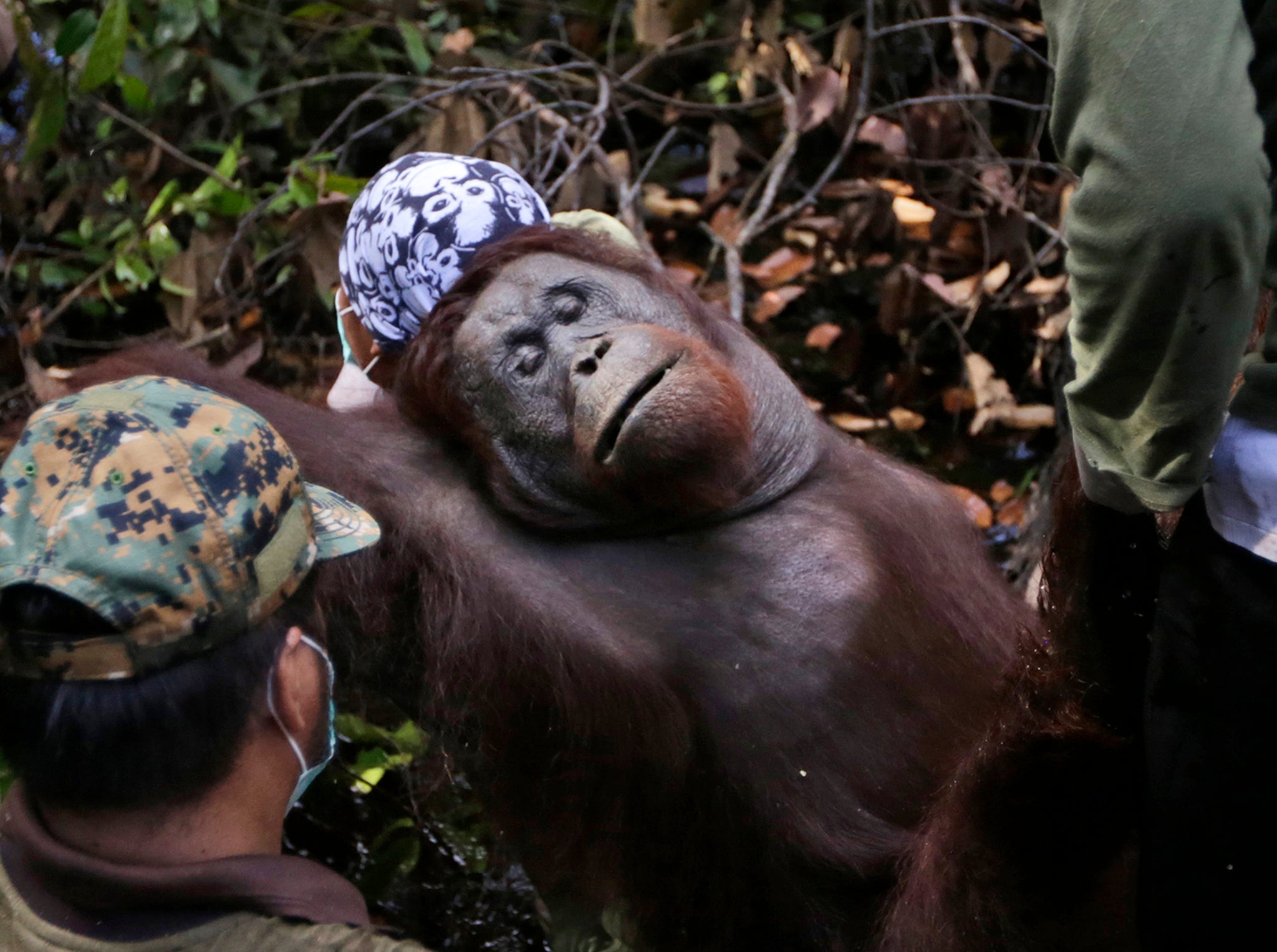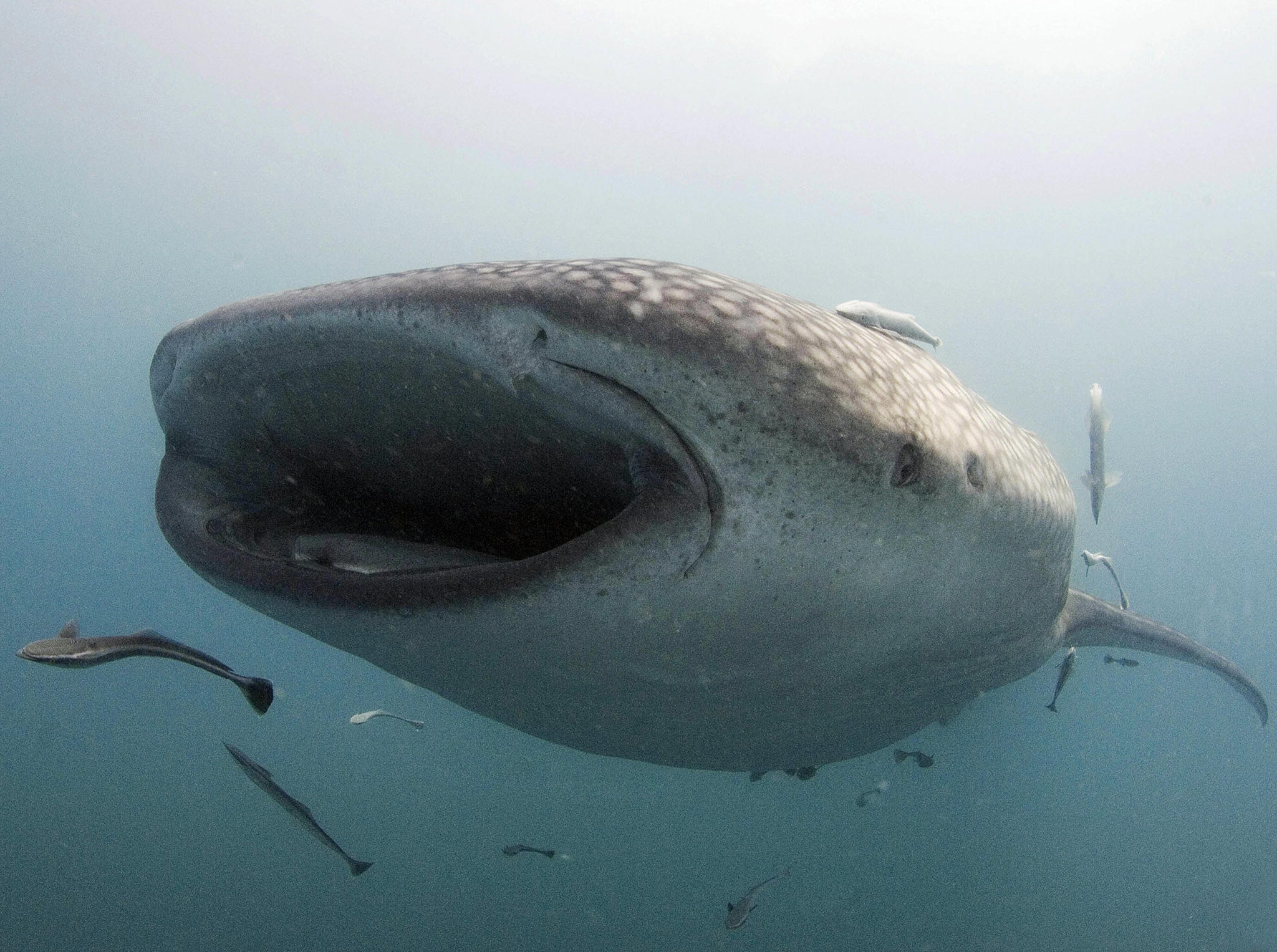Bornean Orangutans and whale sharks are near extinction due to humans, conservationists warn
'As orangutans are hunted and pushed out of their habitats, losses to this slow-breeding species are enormous and will be extremely difficult to reverse,' says Erik Meijaard

Your support helps us to tell the story
From reproductive rights to climate change to Big Tech, The Independent is on the ground when the story is developing. Whether it's investigating the financials of Elon Musk's pro-Trump PAC or producing our latest documentary, 'The A Word', which shines a light on the American women fighting for reproductive rights, we know how important it is to parse out the facts from the messaging.
At such a critical moment in US history, we need reporters on the ground. Your donation allows us to keep sending journalists to speak to both sides of the story.
The Independent is trusted by Americans across the entire political spectrum. And unlike many other quality news outlets, we choose not to lock Americans out of our reporting and analysis with paywalls. We believe quality journalism should be available to everyone, paid for by those who can afford it.
Your support makes all the difference.Orangutans and whale sharks are on the brink of extinction in Borneo due to human pressures, conservationists have warned.
The International Union for the Conservation of Nature (IUCN) said the number of Bornean orangutans has dropped to 100,000 from 288,500 in 1973. The population is expected to further shrink to 47,000 by 2025, ABC News reports.
Erik Meijaard, the IUCN assessor of the species, said: “This is the first time in many decades that we have a clear understanding of Bornean orangutan population trends.
“As orangutans are hunted and pushed out of their habitats, losses to this slow-breeding species are enormous and will be extremely difficult to reverse.”
In addition to loss of habitat, surveys have found 2,000 to 3,000 orangutans have been killed by hunters or villagers each year over the past four decades.

Joining the great ape on the IUCN’s red list of endangered species is the whale shark, the largest fish in the world.
The slow-moving shark species has seen its numbers halved over the last 75 years, due to increased use of its meat and fins for soups in parts of Asia.
They have also been caught accidentally by trawlers fishing for tuna or killed by ship propellers.
Another species added to the red list is the winghead shark, a member of the hammerhead shark family.
Join our commenting forum
Join thought-provoking conversations, follow other Independent readers and see their replies
Comments